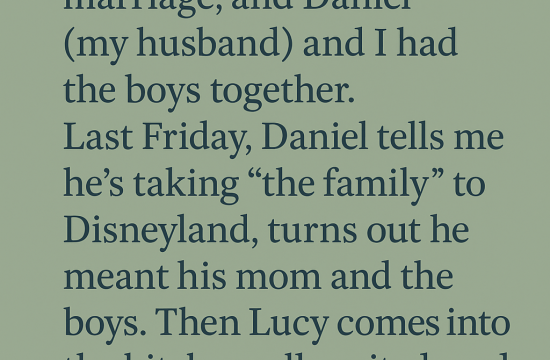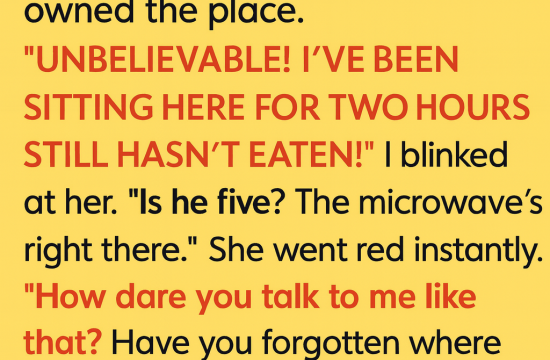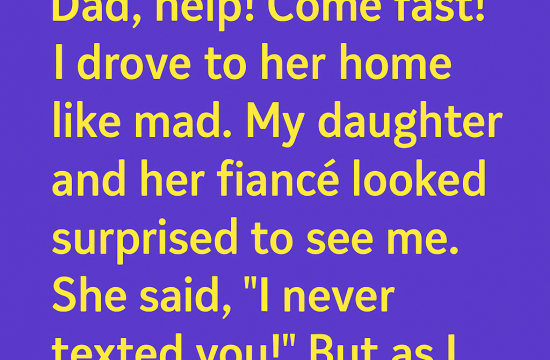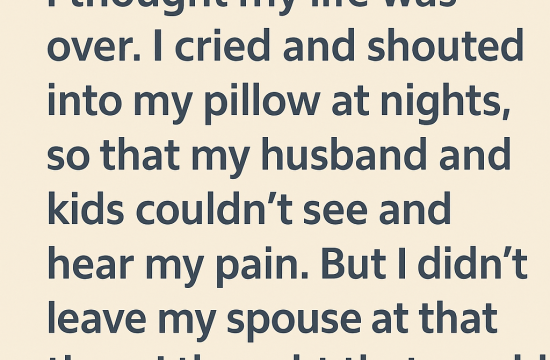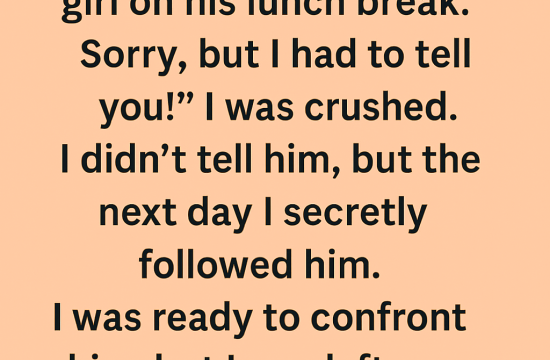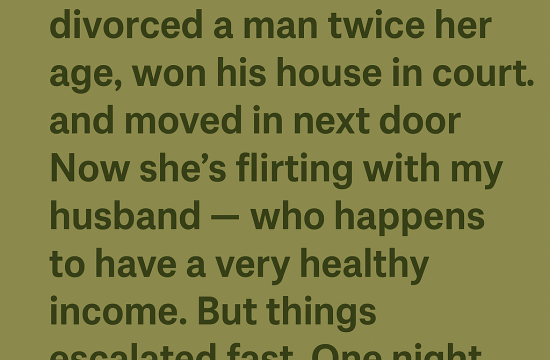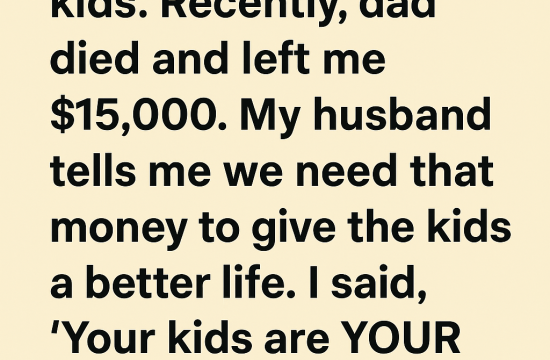The grocery store I worked at was small—more like a large convenience store, really—but it had its own kind of charm. It wasn’t fancy, but it was familiar, a little hub of everyday life. We had our cast of regulars, and in a place like that, you got to know people by the patterns of their shopping.
There was Mrs. Johnson, who had to be at least eighty, but still came in every Tuesday for her whole grain bread, a few cans of soup, and—without fail—a small bouquet of flowers. She always said the flowers were for herself, “to remind me there’s beauty in this world, even when you’re old.”
That day began like any other. I was at my checkout lane, swiping groceries across the scanner, giving each customer my usual, “Hi there! How’s your day going?” while silently counting down the hours until my shift ended. The scent of warm bread floated from the bakery aisle, mixing with the sharp tang of cleaning supplies someone had spilled in the back. It wasn’t glamorous, but it was my normal.
I was just about to ring up Mr. Simmons, another regular with a peculiar habit of stacking his groceries in perfect little towers on the conveyor belt, when the automatic doors at the front burst open.
And in she came.
A woman in her late thirties, hair frizzed like she’d run through a storm, and a scowl so sharp it could cut glass. She was marching straight toward my register with a force that made people instinctively step aside. Trailing behind her was a boy, maybe six or seven, clutching her hand with a nervous grip. His wide, uncertain eyes found mine for a fleeting second, and my heart ached for him.
Her voice rang out before she even reached me. “Why are you out of organic apples? I need two bags, not one.”
It wasn’t a question—it was an accusation. Loud enough that Mr. Simmons flinched and pressed protectively against his carefully stacked groceries.
I blinked, switching from autopilot to damage control. “I’m so sorry, ma’am. There’s been a supply shortage—”
“That’s not my problem!” she snapped, cutting me off. Her volume climbed higher, pulling the attention of everyone within earshot. “You’re supposed to keep this place stocked. I came here specifically for apples, and now you’re telling me you don’t have any?”
The air in the store shifted. Shoppers froze mid-aisle, some pretending to browse shelves while sneaking glances, others openly staring. From the deli, Linda—the manager—peeked out, lips pressed tight.
The woman leaned in closer, lowering her voice to a threat. “You think I’ll just let this go? I’ll make sure everyone knows how incompetent you are. I’ll leave reviews so bad, you’ll be out of a job by the end of the week.”
Her words landed like a slap, but what stuck with me wasn’t her anger. It was the little boy tugging gently at her sleeve, his voice barely above a whisper: “Mom, it’s okay. We don’t need apples.”
She shushed him sharply, brushing him off. “Tommy, stay quiet. Mommy’s handling this.”
The room was thick with tension, everyone waiting to see if she’d explode again. And then fate, with impeccable timing, stepped in.
As she spun toward the doors for her grand exit, the automatic sensors failed—again. Instead of gliding open, the glass panels stayed stubbornly shut. She walked straight into them with a loud thud.
The entire store went silent. Registers, coolers, conversations—all stilled in that single, echoing moment. Her cheeks burned crimson, not with rage but with the unmistakable glow of embarrassment. She froze, blinking at the glass as though willing it to vanish.
And then came the voice that changed everything.
“Mom,” Tommy said, tugging at her sleeve again. This time louder, firmer. “You were mean to that cashier lady. You should say sorry.”
Gasps fluttered through the store. Heads turned, eyes widened. The tiny boy stood anchored to the floor, gripping his mother’s hand, but his gaze was steady. There was no malice in it—just an innocent honesty that cut sharper than any adult’s judgment.
The woman faltered. For a heartbeat, she looked human again, shoulders sagging, anger drained. She seemed small, tired, as if the weight of her pride was too heavy to carry. And for a split second, I thought she might actually apologize.
But pride is a stubborn thing. Her jaw tightened, her lips pressed into a thin line. She muttered something low and indecipherable, pulled Tommy’s hand, and turned just as the doors finally slid open as if mocking her. Together, they disappeared into the parking lot.
The silence lingered like the aftertaste of something bitter. Slowly, the store came back to life. Scanners beeped, carts rolled, voices rose again. But the scene stayed suspended in everyone’s mind.
Linda appeared at my side, her hand warm and steady on my shoulder. “You okay?” she asked quietly.
I exhaled, realizing I’d been holding my breath. “Yeah. Just… wasn’t expecting that.”
“You handled it like a pro,” she said, giving me a small, approving smile before walking back to her post.
As I resumed scanning groceries, my thoughts drifted back to Tommy. I wondered what kind of conversation they were having in the car. Would she ignore him? Snap at him? Or—just maybe—let his words sink in?
I could only hope that one day he’d remember this moment. That he’d hold on to the truth he already understood at six years old—that saying sorry doesn’t make you weak. It makes you strong.




